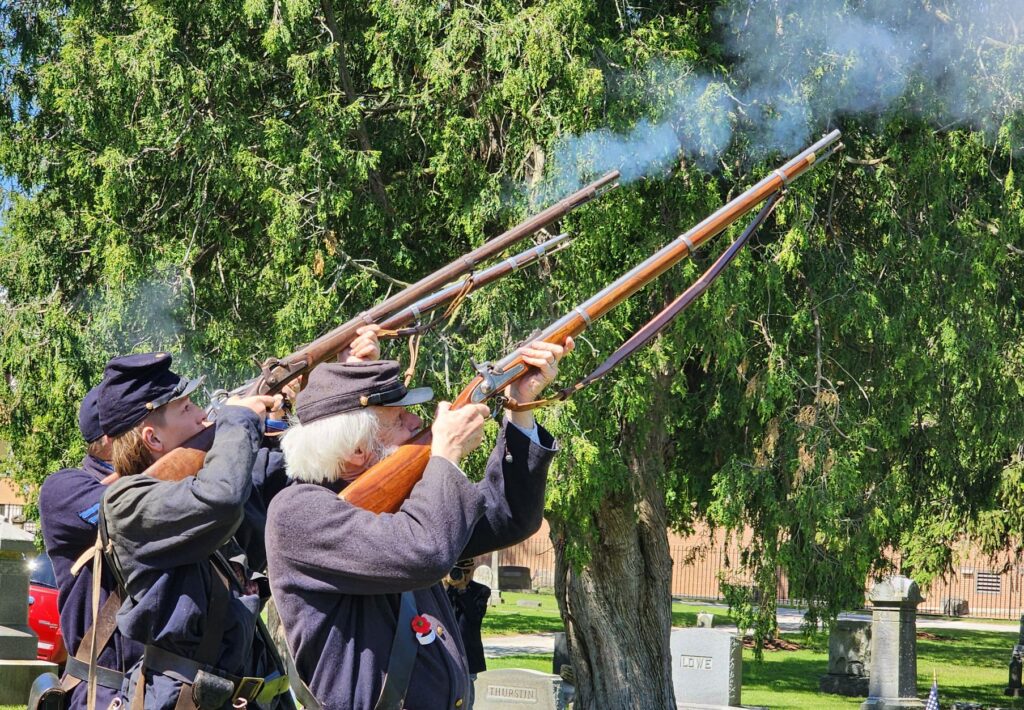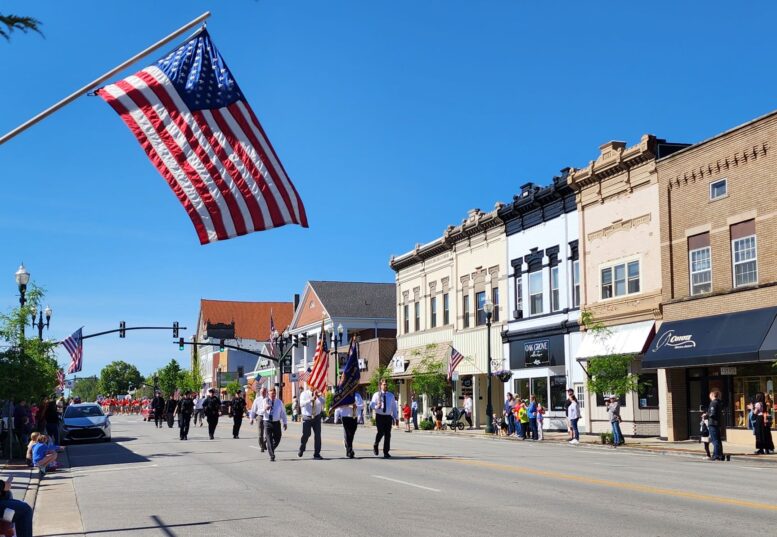By JAN McLAUGHLIN
BG Independent News
Just as they have in many years past, Ronald and Linda Browne sat on the steps of the Wood County Courthouse waiting for the Memorial Day Parade to reach the courthouse. The Bowling Green couple, both veterans, saluted as a wreath was placed on a memorial to the fallen.
This is where they belong on the last Monday every May.
“My whole life has been intertwined with the military,” said Ronald Browne, who joined the Air Force toward the end of the Korean War, served seven years, then went onto another 22 years in the Air National Guard.
Linda Browne, who also served four years in the Air National Guard, said she and her husband have a tradition of attending Memorial Day services. “To honor our veterans,” she said.
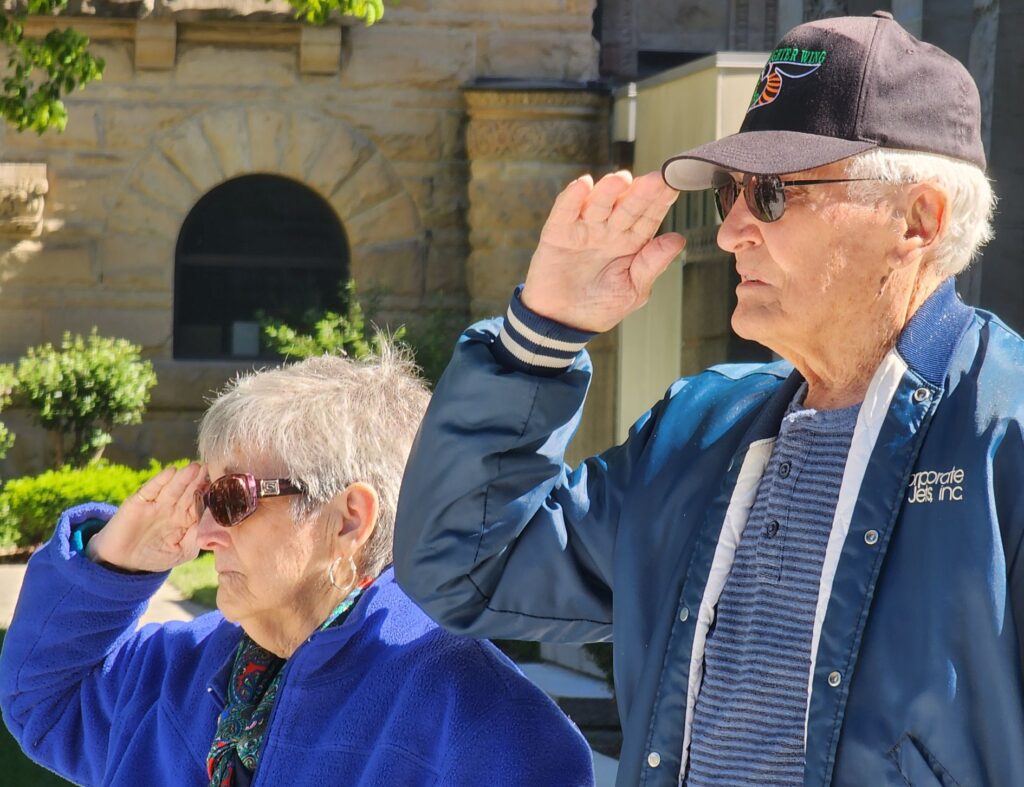
From the courthouse, the parade traveled to Oak Grove Cemetery, led by American Legion and VFW members, scouting groups and the Bowling Green High School marching band.
The cemetery was the perfect location to honor the fallen, according to keynote speaker Wood County Common Pleas Judge Matt Reger.
“It is fitting and appropriate that we celebrate this Memorial Day at this spot,” Reger said to those gathered around the circle at the top of the mound. The design for the center of Oak Grove Cemetery was devised by Col. John Shannon, Civil War veteran and mayor of Bowling Green.
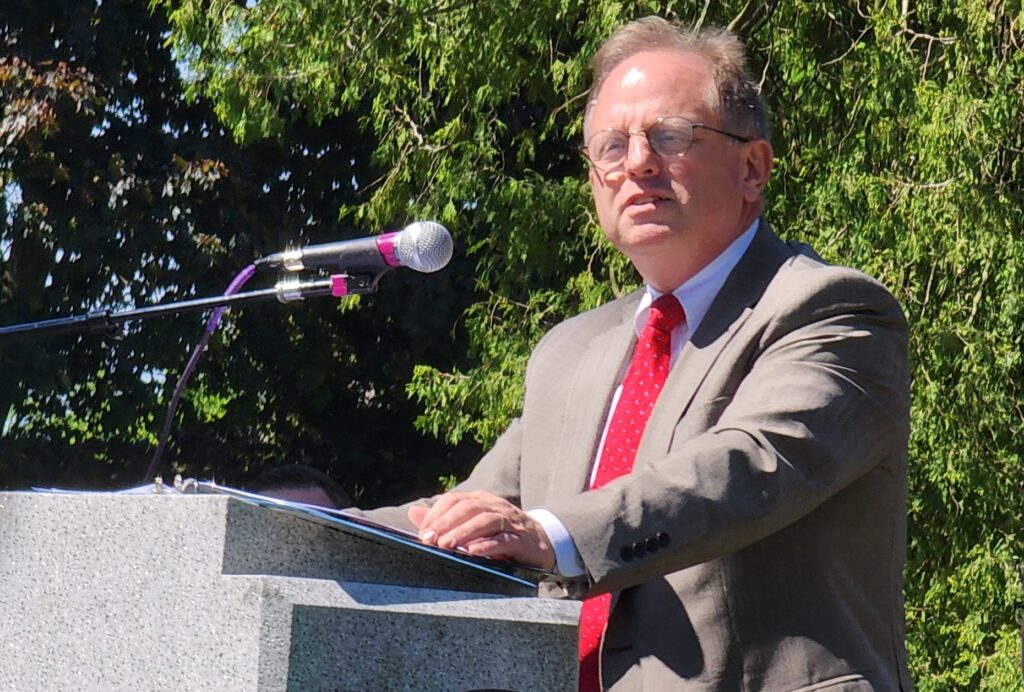
“He took as inspiration the military cemetery at Gettysburg, Pennsylvania, in creating the circle of graves that adorn this hill we stand at the top of today,” Reger said. “In making that specific design, he sought to commit this ground and its design to a perpetuity of memory of those who dedicated their lives, fortunes and sacred honor to this great country.”
Buried there are many men who lived in Bowling Green, but carried with them the memories and scars of battles elsewhere.
Ed Lentz was a private in the Spanish American War, serving as a Rough Rider with Theodore Roosevelt. Benjamin Franklin Cox was wounded serving in the 67th Ohio Volunteer Infantry during the Civil War. And Fred Sharon served four years in the Civil War. “He carried with him the memories of his service and a bullet that was never removed,” Reger said.
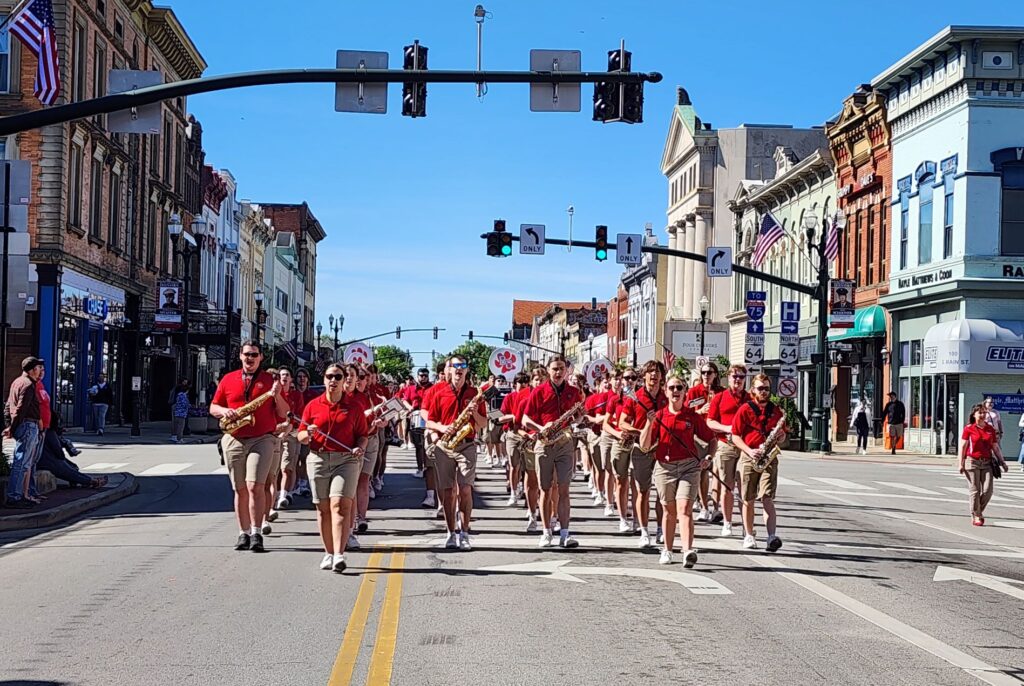
Though a civilian who never served in the military, Reger said he is humbled by the service of others.
While they have defended American ideals, they also fought for those waiting for them back home.
“I recently had the privilege of reading over 100 letters written by my grandfather to my grandmother during World War II, while he was serving in Germany in the last days of the war and occupation,” Reger said. “Although some of these letters told of battles he fought and adventures necessitated by his service, most of his musings were about life once he left the military. He spoke of finding a job, buying land, having a farm, and simply enjoying a life without war.”
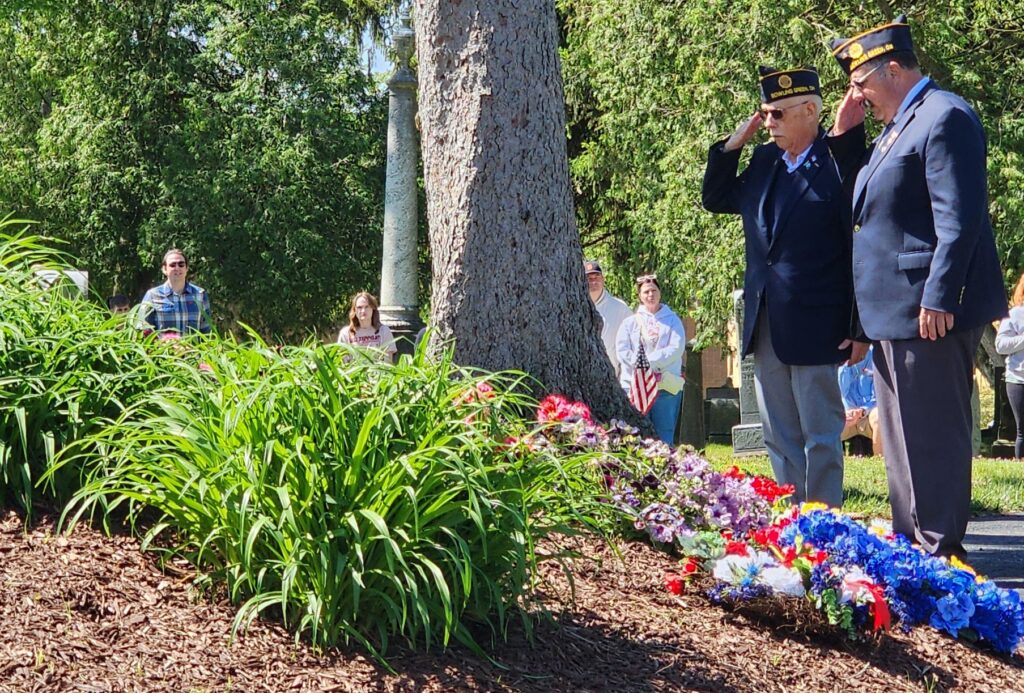
Those thoughts were luxuries possible only during quiet moments of war.
“But at the moment of battle, I believe that the thought of the soldier is first for those around him. He is attached to his comrades in arms and is first concerned about their lives,” Reger said of soldiers throughout time. “This comradery of the veterans spans time, borders and ideology. It is a bond that few can understand unless they have been caught in the intensity of relationships forged in the common cause fought together.”
Citizens who have garnered privileges through the sacrifices of these soldiers, owe a duty to protect and maintain the ideals defended by those who have died, the judge said.
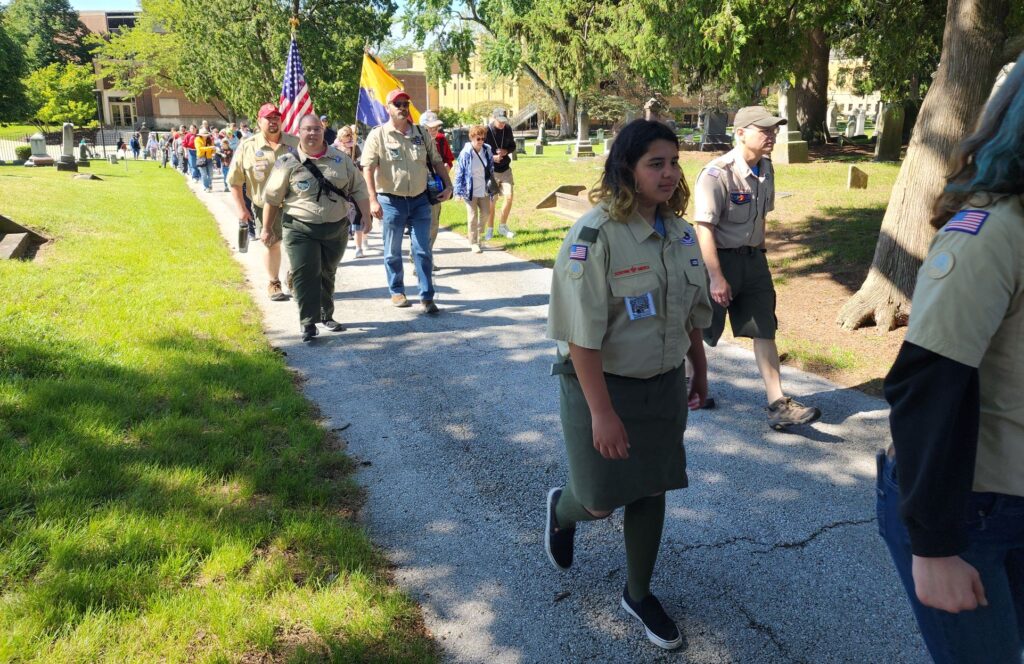
Reger urged those present to hold tight to the memories of loved ones who fought, to tend to the graves of those soldiers, to listen and to share the stories of veterans.
“But today I am going to call on you to honor their memory in a special way,” he said. “I am calling you to dedicate yourself to that higher cause that they may not have considered in the heat of battle, but which Abraham Lincoln asked all citizens to honor.”
Reger had Scouts at the cemetery pass out pocket-sized Constitutions to those present.
“This is the owner’s manual for citizens of the United States,” he said. “It details the functions of your government, the divisions of the branches, and the rights which have been endowed to you.”
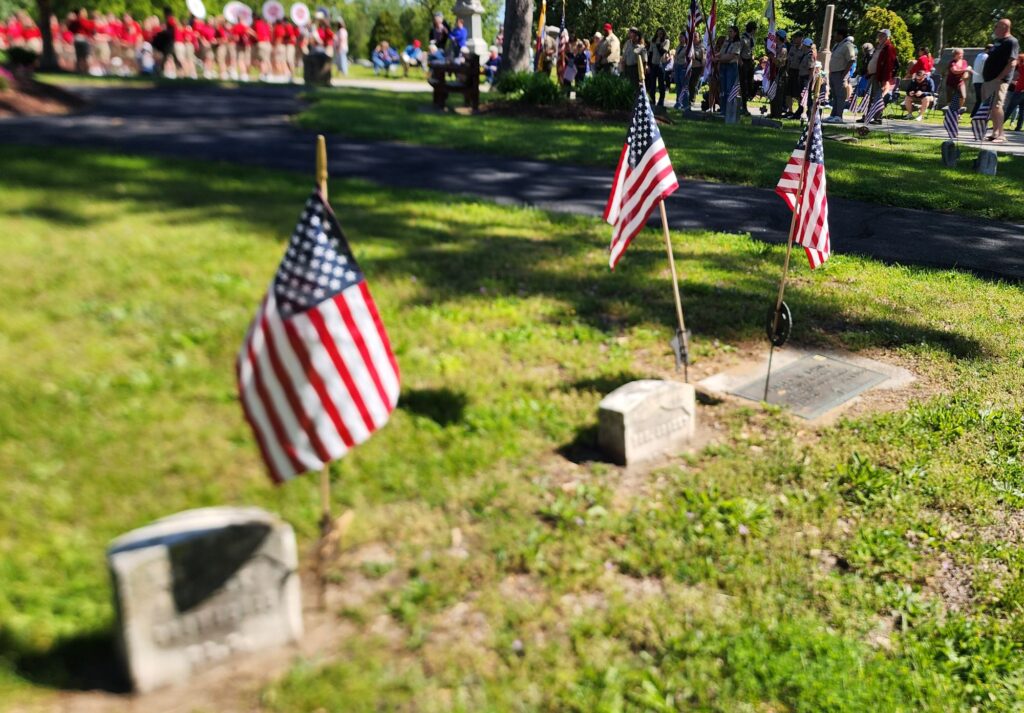
Reger focused on the First Amendment, which bestowed six rights in just 45 words – the right to worship God as one is called to worship; the right to not have the government choose what religion is yours but for you to make that choice; the right to speak as your conscience calls you to speak; the right to have a press that can report the truth of our times; the right to gather and call the government to task; and the right to ask and complain about our government without fear of punishment or reprisals.
As a judge, Reger has sworn an oath to those rights. And as a grandson of a WWII veteran, great-grandson of a Spanish American War veteran, great-great-great grandson of a Civil War veteran, and great-great-great-great-great grandson of a Revolutionary War veteran, he feel a sacred duty to those who fought.
“I call upon you to do the same,” Reger said. “Take this Constitution, consider the sacrifice of those who fought and died for this country, and carry on their memory by dedicating yourselves to the preservation of this country of the people, by the people, for the people, so that its ideas may never perish from the earth.”
